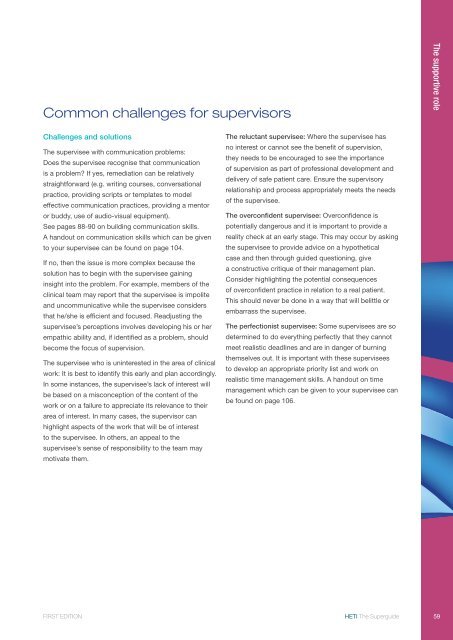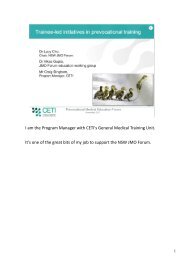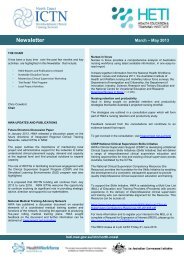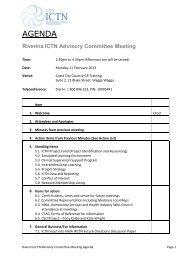Open - HETI - NSW Government
Open - HETI - NSW Government
Open - HETI - NSW Government
- No tags were found...
You also want an ePaper? Increase the reach of your titles
YUMPU automatically turns print PDFs into web optimized ePapers that Google loves.
Common challenges for supervisorsThe supportive roleChallenges and solutionsThe supervisee with communication problems:Does the supervisee recognise that communicationis a problem? If yes, remediation can be relativelystraightforward (e.g. writing courses, conversationalpractice, providing scripts or templates to modeleffective communication practices, providing a mentoror buddy, use of audio-visual equipment).See pages 88-90 on building communication skills.A handout on communication skills which can be givento your supervisee can be found on page 104.If no, then the issue is more complex because thesolution has to begin with the supervisee gaininginsight into the problem. For example, members of theclinical team may report that the supervisee is impoliteand uncommunicative while the supervisee considersthat he/she is efficient and focused. Readjusting thesupervisee’s perceptions involves developing his or herempathic ability and, if identified as a problem, shouldbecome the focus of supervision.The supervisee who is uninterested in the area of clinicalwork: It is best to identify this early and plan accordingly.In some instances, the supervisee’s lack of interest willbe based on a misconception of the content of thework or on a failure to appreciate its relevance to theirarea of interest. In many cases, the supervisor canhighlight aspects of the work that will be of interestto the supervisee. In others, an appeal to thesupervisee’s sense of responsibility to the team maymotivate them.The reluctant supervisee: Where the supervisee hasno interest or cannot see the benefit of supervision,they needs to be encouraged to see the importanceof supervision as part of professional development anddelivery of safe patient care. Ensure the supervisoryrelationship and process appropriately meets the needsof the supervisee.The overconfident supervisee: Overconfidence ispotentially dangerous and it is important to provide areality check at an early stage. This may occur by askingthe supervisee to provide advice on a hypotheticalcase and then through guided questioning, givea constructive critique of their management plan.Consider highlighting the potential consequencesof overconfident practice in relation to a real patient.This should never be done in a way that will belittle orembarrass the supervisee.The perfectionist supervisee: Some supervisees are sodetermined to do everything perfectly that they cannotmeet realistic deadlines and are in danger of burningthemselves out. It is important with these superviseesto develop an appropriate priority list and work onrealistic time management skills. A handout on timemanagement which can be given to your supervisee canbe found on page 106.FIRST EDITION<strong>HETI</strong> The Superguide59
















